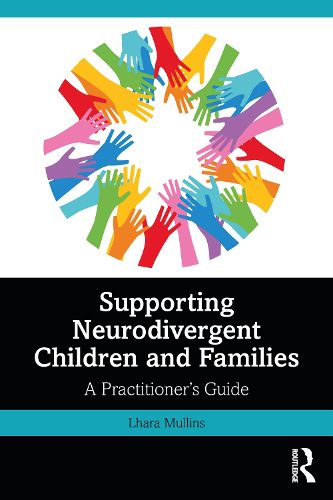Readings Newsletter
Become a Readings Member to make your shopping experience even easier.
Sign in or sign up for free!
You’re not far away from qualifying for FREE standard shipping within Australia
You’ve qualified for FREE standard shipping within Australia
The cart is loading…






Supporting Neurodivergent Children and Families presents an innovative blueprint using academic literature, research and theory, to provide a best practice approach in equipping practitioners to support neurodivergent children and their families.
The knowledge and insight provided in this book allows practitioners to effectively create supportive environments and plan appropriate practice responses, whilst never changing the child. By altering the system perspective and transcending the physical boundaries of space where the interaction occurs, a supportive environment is created, thus providing more positive outcomes. The blend of practice experiences, tangible case studies and theory prompts the reader to critically reflect on their practice and potentially integrate new, innovative changes to their approach.
This comprehensive and thought-provoking read is not only ideal for students and professionals who interact with neurodiverse families, but also practitioners and educators looking to alter their practical approach to understanding neurodivergent children and their families.
$9.00 standard shipping within Australia
FREE standard shipping within Australia for orders over $100.00
Express & International shipping calculated at checkout
Supporting Neurodivergent Children and Families presents an innovative blueprint using academic literature, research and theory, to provide a best practice approach in equipping practitioners to support neurodivergent children and their families.
The knowledge and insight provided in this book allows practitioners to effectively create supportive environments and plan appropriate practice responses, whilst never changing the child. By altering the system perspective and transcending the physical boundaries of space where the interaction occurs, a supportive environment is created, thus providing more positive outcomes. The blend of practice experiences, tangible case studies and theory prompts the reader to critically reflect on their practice and potentially integrate new, innovative changes to their approach.
This comprehensive and thought-provoking read is not only ideal for students and professionals who interact with neurodiverse families, but also practitioners and educators looking to alter their practical approach to understanding neurodivergent children and their families.